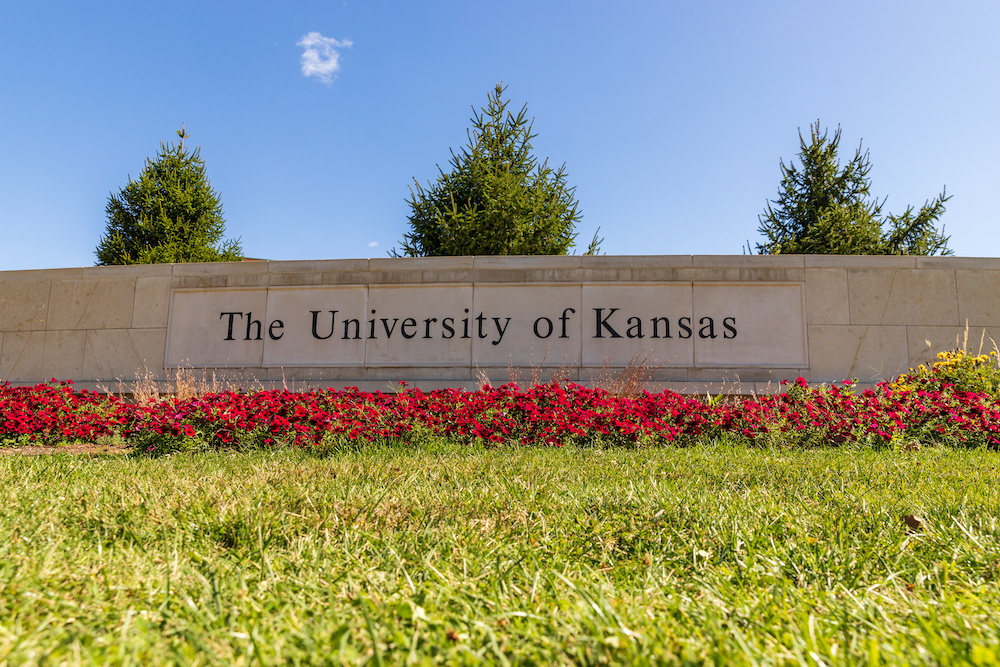
- Details
- By Jenna Kunze
The University of Kansas (KU) is bringing on a repatriation program manager next month to facilitate the return of 380 ancestors and 554 burial objects university staff found on campus in September 2022.
In early September, a new collections manager working in the KU’s natural history museum found documents about the Native American human remains while familiarizing herself with the collections, Melissa Peterson (Diné), the school’s director of tribal relations, told Native News Online at the time. The ancestors were being stored in the basement of a building next to the Indigenous Studies Program’s building on campus.
According to the information KU staff self-reported by law in the '90s, the university holds a minimum of 380 culturally unaffiliated human remains and 554 associated funerary objects. Origins listed for the remains and artifacts include Nebraska, New Mexico, New York, Montana, Arizona, Illinois, Florida, Kansas, and Missouri.
The discovery set off a chain of reactions from KU: the University Chancellor Douglas Girod sent out a statement to students and faculty, university administration met with Native student and faculty, and KU established a NAGPRA committee and created a ‘repatriation and NAGPRA’ website to educate the student body and the larger community about NAGPRA.
Hiring a repatrations manager is the university’s latest step in a string of reactions to “fully [commit] to the work of creating meaningful institutional memory by properly repatriating the ancestors and funerary objects,” as promised by University Chancellor Douglas Girod in the immediate aftermath of the discovery.
The new hire, Thomas Torma, will coordinate consultations with tribal nations to ensure that each ancestor and belonging is affiliated to a present day tribe and brought home.
Torma comes to KU with more than two years of experience as the NAGPRA liaison at the University of California, Berkeley, which has been sharply criticized for its massive collection of Native ancestors and artifacts, as well as its historically slow efforts to repatriate them. During Torma’s tenure at Berkeley, he oversaw the repatriation of over 930 ancestors, according to the news release from KU.
Torma also previously worked as the Cultural Director for the Wiyot Tribe from 2013 to 2017, according to his Linkedin, where helped facilitate the return of culturally sensitive items and human remains held by museums including the Field Museum, The Brooklyn Museum, The Smithsonian, and The Hearst Museums.
Torma will continue the work initially begun by Peterson.
“I am pleased with the care that Tom will bring to this work at KU,” Peterson said in a statement. “It is very important for me to ensure that our repatriation program manager had the Indigenous knowledge in addition to the NAGPRA knowledge in repatriation. He possesses a very unique skill set, and I am ready for him to lead the work we started.”
More Stories Like This
NCAI Passes Two Emergency Resolutions on Immigration Enforcement ActivitiesChickasaw Lighthorse Police Officer named Indian Country Law Enforcement Officer of the Year
Indian Gaming Association Rallies Broad Coalition Against Sports Event Contracts It Calls Illegal Threat to Tribal Sovereignty
Navajo Resources and Development Committee Issues Notice on Livestock Inspection Requirements
American Prairie, Tribal Coalition Files Protest Over Rescinded Grazing Rights
Help us defend tribal sovereignty.
At Native News Online, our mission is rooted in telling the stories that strengthen sovereignty and uplift Indigenous voices — not just at year’s end, but every single day.
Because of your generosity last year, we were able to keep our reporters on the ground in tribal communities, at national gatherings and in the halls of Congress — covering the issues that matter most to Indian Country: sovereignty, culture, education, health and economic opportunity.
That support sustained us through a tough year in 2025. Now, as we look to the year ahead, we need your help right now to ensure warrior journalism remains strong — reporting that defends tribal sovereignty, amplifies Native truth, and holds power accountable.
 The stakes couldn't be higher. Your support keeps Native voices heard, Native stories told and Native sovereignty defended.
The stakes couldn't be higher. Your support keeps Native voices heard, Native stories told and Native sovereignty defended.
Stand with Warrior Journalism today.
Levi Rickert (Potawatomi), Editor & Publisher

